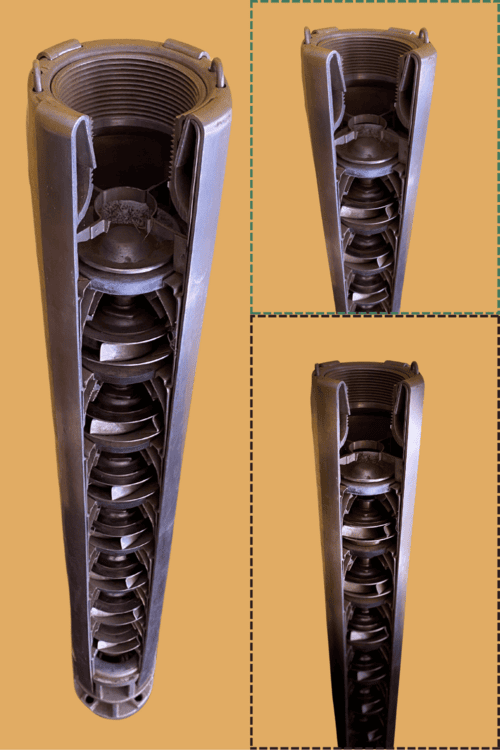
Bore Well Submersible Pump vs Bore Well Jet Pumps
Bore well submersible pumps and traditional jet pumps both serve the purpose of lifting water from underground sources such as bore wells, but they have distinct advantages and disadvantages. Here are some advantages of bore well submersible pumps over traditional jet pumps:
Efficiency: Submersible pumps are generally more efficient than jet pumps. They are designed to be submerged in water, which helps in pushing water to the surface with less energy consumption. This efficiency translates to lower electricity costs over time.
Deeper Well Capability: Bore well submersible pumps are capable of drawing water from deeper wells compared to traditional jet pumps. This makes them suitable for applications where water sources are deep underground.
Less Noise: Submersible pumps are typically quieter during operation compared to jet pumps. Since they are submerged in water, there is less noise transmitted to the surface, making them ideal for residential and noise-sensitive environments.
Minimal Maintenance: Submersible pumps require less maintenance compared to jet pumps. They are sealed units that do not require priming, and since they are submerged, they are protected from weather elements and debris, reducing the need for frequent cleaning and servicing.
Space Saving: Submersible pumps are compact and do not require a separate pump house or priming chamber, saving space on the surface. This can be beneficial for smaller properties or installations where space is limited.
Better Water Quality: Since submersible pumps are located deep within the well, they are less likely to draw in contaminants from the surface. This can result in better water quality compared to jet pumps, which may draw in surface water.
Higher Flow Rates: Submersible pumps are capable of delivering higher flow rates compared to jet pumps of similar size. This makes them suitable for applications requiring greater water output.
Durability: Submersible pumps are designed for long-term use in harsh conditions. The sealed construction protects the motor and internal components from corrosion, extending the pump's lifespan.
Automation: Submersible pumps can be equipped with automatic controls and sensors for efficient operation. This allows for features such as automatic shut-off when water levels are low, preventing pump damage.
In summary, bore well submersible pumps offer several advantages over traditional jet pumps, including higher efficiency, deeper well capability, lower maintenance requirements, quieter operation, better water quality, and space-saving design. These factors make submersible pumps a popular choice for various applications, from residential water supply to agricultural and industrial uses.







